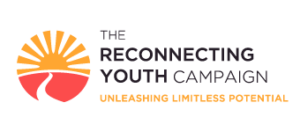Campaign Sign-On Letter Congress: Do Not Leave Young People Behind in Covid Response Bills
In February 2021, as Congress debated the American Recovery Plan Act (ARPA) in response to the devastation of the COVID-19 pandemic, the Reconnecting Youth Campaign and the organizations and individuals below sent a message to Members, urging that youth and young adults, especially Opportunity Youth, not be left out of the bill.
Here is the message, you are free to adapt and use it in your own work. (If you do, drop us a line to let us know!)
___
Dear Members of Congress:
We call on Congress to prioritize well-being and expanded educational and economic opportunities for young people in the American Rescue Plan being considered by Congress. The undersigned organizations represent stakeholders who are committed to ensuring the economic and health security of youth and young adults, particularly youth and young adults of color and all young people who have grown up in under-resourced urban, rural, and tribal communities. Even before the pandemic, all young people, and especially young people of color and those who live in under-resourced communities, were facing declining economic prospects and worsening mental health.
For example:
- As the national poverty rate declined in recent years, young adults consistently experienced higher poverty rates than the national average.
- Even as the nation enjoyed record low unemployment rates between 2016 and early 2020, young people experienced unemployment rates twice as high as the national average.
- From 2016-2018, the number of young people living in poverty who reported they needed, but didn’t receive, mental health services grew from 750,000 to more than 1.1 million.
It was in this context that the COVID-19 pandemic arrived. The COVID-19 pandemic has caused youth disconnection rates to spike dramatically. At least 10 million young people are now out of school and work, a disproportionate number of whom are young people of color. During the pandemic, young people of color have experienced brutal unemployment rates of over 45 percent. And over 90 percent of unemployed young people reported not being able to access any income through stimulus checks or unemployment insurance, despite Congress’ COVID relief efforts.
Congress must now step up. While there are critical provisions in the proposed American Rescue Plan, more must be done to safeguard an equitable recovery.
- Raising the minimum wage. The pre-pandemic poverty rate for youth (aged 18 to 24) in 2019 was 13.3 percent, which was higher than the national rate of 10.5 percent. Many young adults work hard for low wages and need these funds to meet their own basic needs, support their families, or pay for their education. In addition, existing law allows employers to pay youth under age 20 and people with disabilities a subminimum wage of $4.25 for the first 90 days of their employment. The rescue plan seeks to gradually phase out the subminimum wage plan, along with raising the overall minimum wage. This subminimum wage prohibits youth and people with disabilities from being active consumers in their communities, saving money, or achieving true economic stability.
- Expanding the Earned Income Tax Credit (EITC) to both cover young workers without children and those whose children do not live with them and to provide a larger credit. The combination of these changes would ensure that we no longer tax low-paid workers into poverty because they are either left out of the credit or their taxes exceed their tiny EITC. Expanding the (EITC) for youth and young adults without children, or whose children do not live with them would give a needed boost to the earnings of several million workers between the ages of 19 and 25. These include cashiers, home health aides, delivery people, and other essential workers – who are more likely to be youth and young adults. The expansion would also support non-custodial parents who are largely left out of receiving the EITC even though they are providing support for their child.
The increased minimum wage and EITC work together to augment young people’s income and give youth and young adults increased economic security.
Additionally, we are supportive of the following provisions, but if they are strengthened to meet the needs of youth and young adults:
- Addressing the mental health crisis. While the American Rescue plan makes a critical $4 billion investment in supporting mental health, it falls dramatically short in the context of a once-in-a-century cultural trauma and the associated mental health concerns that the entire country has experienced. Therefore, we urge Congress to prioritize young people’s healing and well-being to make an additional, targeted $7.5 billion investment in culturally responsive, trauma-informed, and community-based mental health supports.
- Getting stimulus checks to those who need them. Stimulus checks must be sent directly to young adults who are enrolled in community colleges, career and technical education programs, and colleges who can be claimed as dependents. These young adults have not received a stimulus check at any time since the pandemic began, because individuals under 24 who can be claimed as a dependent were excluded from direct payments in the previous relief packages. This population should receive the next stimulus payments – and retroactive payment for the first two stimulus checks. We also believe that young-adult students should not be denied the EITC for workers without dependent children.
Beyond the American Rescue Plan, Congress must do much more to support economic recovery for young people. This means substantial new and expanded investments in education, employment, and mental health:
- Strengthening existing programs through the Relaunching America’s Workforce Act.
- Expanding existing authorized and proven federal programs designed to reconnect youth to education, employment, service, and leadership opportunities.
- Enacting a permanent, national subsidized-jobs program to provide employment opportunities to workers persistently excluded from the labor force;
- Creating a Civilian Conservation Corps. President Biden’s recent Executive Order calling for the creation of a Civilian Climate Corps (CCC) highlights the dire need for climate response. The CCC could be a response to the record low unemployment for young people in our country and should be strengthened legislatively. It could provide them with the training and experience needed to be on a pathway to careers in the ever-expanding areas of conservation and climate resiliency. Congress must enshrine in law the CCC with protections to ensure it is equitable and diverse, intentionally recruiting, enrolling, and supporting women, young people of color, urban and rural youth, and others from historically disenfranchised communities.
- Centering young people in infrastructure and climate-change legislation;
- Providing access to bridging supports to young people who have experienced educational disruptions, with a focus on young people of color and low-income youth of all backgrounds; and
- A whole-of-government approach to infusing trauma-informed and healing-centered practices in federally supported grant programs, such as those we proposed in 2020, to address the mental health consequences of the pandemic.
The COVID-19 pandemic has exacerbated deep-seated inequities in our nation. It has deepened the suffering of people born into poverty and it has shown the systemic underinvestment in opportunity for youth and young adults. We will be judged by how we respond in this moment. Congress must take steps to change the odds for the next generation.
Sincerely,
Organizations
YouthBuild USA
Opportunity Youth United
Jobs for the Future
Child Welfare League of America
StoneSoup Community Venture, Inc.
National Network for Youth, Inc.
National Black Child Development Institute
The Gathering for Justice
Young Invincibles
Social Capital Builders
Pathways Consultants
National Crittenton
Strumpf Associates: Center for Strategic Change
MENTOR National
Arizona Center for Youth Resources
Think of Us
The W. Haywood Burns Institute
Hindu American Foundation
National Hispanic Medical Association
New Ways to Work
URGE: Unite for Reproductive & Gender Equity
The Center for Youth and Communities, The Heller School for Social Policy & Management, Brandeis University
RESULTS
Youth Collaboratory
Momentum Strategy & Research
City of Albany, Department of Recreation, Youth & Workforce Services
Poligon Education Fund
Impetus – Let’s get started LLC
Latin American Youth Center
The BOOM
Hispanic Federation
Strategies for Youth
Aspen Institute Forum for Community Solutions
The Forum for Youth Investment
OutCenter of Southwest Michigan
NASTAD
Healing Ninjas, Inc.
Prevention Institute
Mentor Washington
Advocates for Youth
Heartland Alliance
The Coalition of Labor Union Women
Autistic Self Advocacy Network
National Resource Center on Domestic Violence
Community Center for Education Results
California Opportunity Youth Network
Beyond Ferguson: Bridging the Class and Racial Divides
Regional Engagement Center
Keys to Work
East Harlem Youth Opportunity Hub
Partners for Education at Berea College
JVS – Bay Area
Soar
Boston Community Action Team
Children’s Aid
National Black Justice Coalition
National Partnership for Women & Families
Phipps Neighborhoods
Campaign for Trauma Informed Policy and Practice
Center for Teen Empowerment
National Juvenile Justice Network
Opportunity Youth United/ YouthBuild
Philadelphia Youth Network
United Way
Boston Youth Transitions Task Force
New Orleans Children and Youth Planning Board
MS Delta Voter Education Project
Futures Without Violence
Alternative Schools Network
OYU Montgomery CAT
Purpose and Destiny Family School Community Resource Network
Student Voice
Capital Workforce Partners
Momentum Strategy & Research
Juvenile Law Center
Association of Children’s Residential Centers (ACRC)
National Guard Youth Foundation
DC Advisory Neighborhood Commission Single Member District 1A07
Open Buffalo Inc.
Story For All
MENTOR Vermont
Youth Will
Center for Latino Progress – CPRF
Breaktime United Inc.
Alliance for Strong Families and Communities
JobsFirstNYC
Sunflower County Parents and Students United
National Association of Counsel for Children
Groundwork Action
RebuildingGreenUSA
United Way
Pwani Youth Network
Public Allies
Center for Law and Social Policy (CLASP)
Children’s Funding Project
Youth Over Us, Inc.
OCCORD
Youth Education Initiative
Individuals
oumou kaba
Justin Truong
Paul Smiith
J. Montana Cain
Laine Culbreath
Amanda Ruud
Belinda Escalante
Jamiel L. Alexander
Joseph Yusuf
Marie Moll
Boris Ricks
Savannah Jones
Shawnice Jackson
Gerod Blue
Shanell Meredith
Barb Hillaker
Tavon Gatling
Alyssa Lucas
Alycia Hardy
Leah Wallace
Marissa Howdershelt
Ryan Dalton
Treasure Brown
Ryan Dalton
Dorothy Stoneman
Evangeline G. Alpogianis
Duy Pham
Paula Mora
Isaac Abraham Espinal
Robert Bruning
Humberto Palacios
Amy Dupuis
Michael Torres
Grant Wingo
Ashley Nicoson
Eileen Donovan
Tim Sampey
Steven Figueroa
Frank Zhu
Caitlin Shea Felde
Matthew Kling
Willie Thomas
Martrice Manuel
Victory Ebuka Achinne
Devon Patterson
Whitney Bunts
Karen Dolan
Diane Korf
Rebecca Whitehurst
Jaquell Sneed
Justin Truong
Deonte Nance
Darcy Young
Leith Lombas
Matthew Kling
Dominique Jones
Joleen Lunzer
Matthew Kling
Valeria Evans
Antonio Ramirez Jr
Germain Castellanos
Nicolas Martinez
Christine Johnson-Staub
Marcus Davis
Michael J. Donnelly
Anthony Simpson
James Mackey
Brandon Micheal Menjares
Stuart Andreason
Xavier Jennings
Richard Semegram
Stuart Andreason
Xavier Jennings
Victory Ebuka Achinne
Shablé Harris
Shaquana Boykin
Wendy McClanahan
Click here to add your own text






